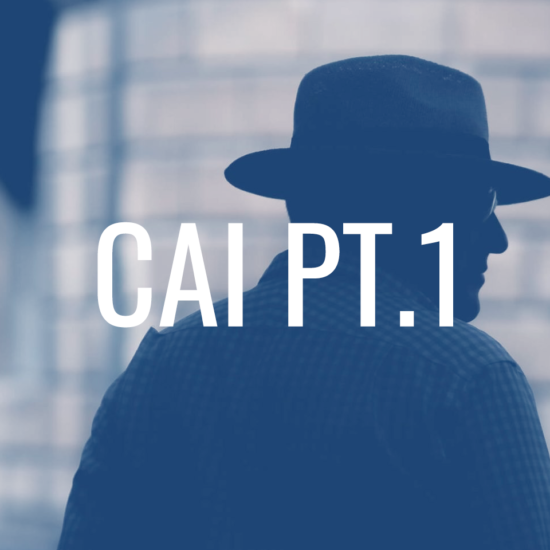
HOA Detective™ | July 8, 2025: In his landmark 1987 book Quality of Earnings, Thornton O’Glove (see link below) exposed a troubling contradiction at the heart of corporate auditing: the auditor, supposedly an independent watchdog, is financially beholden to the company being audited. The auditor-client relationship creates an inescapable conflict of interest. O’Glove argued that this structural flaw makes it less likely that auditors will call out misstatements, irregularities, or even fraud, lest they jeopardize future business from that client.
http://www.thorntonoglove.com/quality-of-earnings-book.html
Anyone who has taken the time to read O’Glove’s book will understand why Warren Buffett has included the book on his list of the 10 most important books on business that every investor should read.
This same ethical pitfall, first noted by Thornton O’ Glove 38 years ago, is alive and well in the world of HOA volunteer governance and the for-profit community management business. In this less-than-transparent environment, Certified Public Accountants (CPAs) are routinely hired to audit or review annual financial statements for homeowner associations. Although the audit/review process is viewed as a “best-practice” safeguard – often with an audit or review requirement included in the association’s bylaws or state statutes – the reality is that HOA audits are just as compromised as their corporate counterparts – and perhaps even more so.
The Auditor is NOT Independent: The problem begins with who pays the auditor. The standard operating procedure is for the HOA board – usually under the guidance of a community management company (AKA: “Manco”) – to engage a CPA firm to perform an audit or review. The CPA is not selected by the owners at large, nor is the scope of the audit negotiated in a public forum. Once hired, the CPA firm’s true client is the Board of Directors (BOD), and by extension, the Manco that shepherded the engagement into place. Several issues are raised by the dubious process:
- If audit or review results don’t reflect favorably on the BOD or the Manco, the firm is unlikely to be hired again.
- If a Manco is caught in the middle of a problematic audit finding, is it less likely that the Manco will refer the firm to other clients.
- To whom does the CPA owe its duty of loyalty?
- Does the HOA Board have the unilateral power to decide if the auditor will be hired again?
- The HOA members who eventually pay the auditor’s fee but have no say in the audit process at all?
No Help From GAAP: This subtle, but powerful dynamic means that the CPA’s “independence” is more aspirational than real. A financial statement that is technically compliant with Generally Accepted Accounting Principles (GAAP) may hide substantial risks, including:
- Underfunded reserves,
- Deferred maintenance,
- Unauthorized expenditures,
- Administrative failings, including missed reporting deadlines and a lack of required insurance.
Regardless, under GAAP, the auditor is not required to raise the alarm.
Worse Yet: HOA audit standards do not obligate the CPA to flag noncompliance with state HOA statutes or even the governing documents of the association itself. In other words, a CPA may deliver a “clean” audit or review while the report effectively endorses the financial statement while ignoring legal noncompliance, structural underfunding, or policy breaches, so long as they are internally consistent and follow GAAP.
This regulatory blind spot makes the entire audit process of questionable value to homeowners, buyers, insurers, and lenders. The fact that most lenders do not demand a clean audit (not a review, an audit), along with 100% compliance with all statutes and the governing documents when making loans to HOAs, says a lot about the state of the commercial lending business.
Buttering the Auditor’s Bread: Even more disturbing is the way CPAs are commonly selected in the HOA business. Community management firms often maintain cozy relationships with a small stable of CPA firms, sending them audit business across dozens or even hundreds of associations. These CPAs understand who butters their bread. Their loyalty lies not with the HOA membership, but with the managers who funnel work their way.
An End to Rubber Stamp Audits: In this system, which incentivizes complacency, not courage, auditors are less likely to criticize the financial stewardship of the BOD or Manco. When critical questions are raised – about inflated administrative fees, misclassified expenses, or slow-declining reserve balances – they are often ignored or minimized when they are addressed at all. The result is a cycle of rubber-stamped financials, unread audit reports, and a false sense of security among homeowners.
The time has come to reform the standards and practices surrounding HOA audits and reviews. At a minimum, three changes are urgently needed:
1. True independence in auditor selection – Homeowners, not the BOD or Mancos, should play a decisive role in choosing the auditing firm. Auditor rotation and disclosure of Manco relationships should be required.
2. Expanded scope of disclosure – CPAs should be required to note when financial practices violate HOA bylaws or state statutes, even if technically compliant with GAAP.
3. Transparent procurement standards – Mancos should not be permitted to direct business to favored audit firms without competitive bidding and full disclosure of prior and ongoing relationships.
An Unlikely but Perfect Solution: Admittedly, the perfect solution is unlikely to occur in this age of less government, but that doesn’t mean it isn’t worthy of discussion. The “perfect solution” to the current audit conundrum would be for auditors to be assigned randomly by an independent agency,y which would act as a clearinghouse for qualified firms which would register with the agency and be vetted, after which time the firm would be assigned audit clients through a process of random selection.
The HOA would pay the auditor’s fee based on a standardized fee schedule that reflects the current rate for audit services in the local market. The state-run HOA Audit Agency could be supported by a small tax on the audit fee, while auditors would be relieved of the need to market their services to HOAs. Simply register with the Audit Agency and wait for the clients to be assigned.
Until these reforms are enacted, HOA audits and reviews will remain more ceremony than substance. Homeowners and prospective buyers deserve better than a hollow ritual. They deserve financial oversight that works in their interests, not in the interests of Mancos and risk-averse auditors. It’s time to stop pretending the emperor has clothes.
Because You’re Buying More Than a Home!







